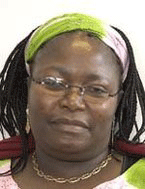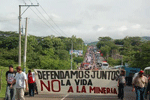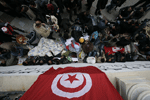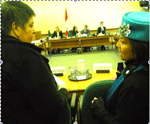Social Watch news
Published on Fri, 2011-12-23 12:38

Demonstration in Rome against
cuts in social spending.
(Photo: Alessandra Raimondi
/Flickr/Creative Commons)
|
As governments all over the world, from industrialized and developing countries alike, have cut their expenditures in the last two years and prepare further savings for the next, the first casualties are the welfare programs, as contributions from grassroots organizations included in the Social Watch Report 2012 make apparent. But austerity measures have proven useless to overcome the crisis, and could even plunge the world into a recession, according to a growing number of experts and international agencies.
“Austerity fiscal policies that cut on social spending started to be implemented in debt-affected countries and are now spreading even to countries that do not suffer from debt problems or fiscal deficit,” wrote the coordinator of Social Watch, Roberto Bissio, in the overview of the report.
|
Published on Fri, 2011-12-23 12:35
A consortium of civil society networks and organizations, including Social Watch and some of its members, launched “A bottom-up approach to righting financial regulation”, an initiative aimed to build the capacity of a vast array of groups and social movements willing to promote alternative proposals based on human rights in the debate.
|
Published on Thu, 2011-12-22 12:25

Emily Sikazwe.
(Photo: DanChurchAid)
|
Religious leaders and politicians have to combine efforts against gender based violence and sexual assaults on children in Zambia, urged Emily Sikazwe, executive director of Women for Change, focal point of Social Watch in that African country.
|
Published on Tue, 2011-12-20 07:40

Demonstration against mining
in El Salvador.
(Photo: Upside Down World)
|
Hundreds of civil society organizations from all over the world are calling the World Bank and the International Centre for Settlement of Investment Disputes (ICSID), associate to the institution, to dismiss the demand of compensation initiated by Canadian company Pacific Rim against the Government of El Salvador, which forbade a cyanide-leach gold mining project presented by the firm.
|
Published on Mon, 2011-12-19 14:20

Photo: Government in the Lab
|
The news has been filled with contention over Egypt’s November elections, but far less attention is being paid to the voting in Tunisia—also recently liberated from the rule of a dictator. In her analysis for Owni.eu and Government in the Lab magazine, Mary Elizabeth King recounted the democratization process and remarked the role of the Tunisian League for Human Rights, focal point of Social Watch in that country.
|
Published on Fri, 2011-12-16 12:12

Occupy Wall Street marks a new
trend in US society. (Photo:
David Shankbone/Good Magazine
/Flickr/Creative Commons)
|
A growing number of US citizens raise their voices “demanding a new social contract” as the multiple world crises are increasing “poverty and income inequality at historic levels.” This unprecedented movement nurtures hope in a change of policies and behaviors “geared toward the well-being of Americans and the rest of the human race,” according to the US national contribution to the Social Watch Report 2012, launched last week.
|
Published on Fri, 2011-12-16 12:10
“The European Union (EU) can assist in the process of democratization of Arab countries, but on our terms,” said Kinda Mohamadieh, program director of the Arab NGO Network for Development (ANND, focal point of Social Watch) at the conference “Democracy & Development”, held in Warsaw.
|
Published on Fri, 2011-12-16 12:08
A new round of negotiations aimed at an agreement by 2015 was launched on Saturday 10 at a stormy last session of the Durban climate conference, reports Martin Khor, executive director of South Centre, in his most recent column for The Star, one of the leading Malaysian newspapers.
Khor’s column reads as follows:
|
Published on Thu, 2011-12-15 08:27

Jeannette Corbiere Lavel and
Sharon Donna McIvor.
(Photo: FAFIA)
|
The UN Committee on the Elimination of Discrimination against Women decided to conduct an inquiry into the murders and disappearances of Aboriginal women and girls across Canada. The decision was announced this week by Jeannette Corbiere Lavell, President of the Native Women’s Association of Canada (NWAC), and Sharon McIvor, of the Canadian Feminist Alliance for International Action (FAFIA, focal point of Social Watch in that North American country).
|
Published on Mon, 2011-12-12 10:50

Watch and listen to Roberto Bissio's
press conference at UN headquarters
in this webcast.
|
Countries like Brazil, and also China and India, in “which stimulus packages were basically directed to support the poor in different ways,” have actually recovered faster from the crisis than industrialized countries, which bailed out banks and rich people, said at UN headquarters in New York Roberto Bissio, Coordinator of Social Watch, when he launched the most recent edition of the annual report of this international network of civil society organizations.
|

|










